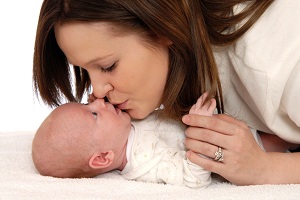The hormones produced during pregnancy push the mother to take care of her baby. This is true in mice as well as in humans. According to a research by the doctors Rosalind John and Anthony Isles of Cardiff University, there could be more. In the genome of the fetus there would in fact be a gene that decides how much maternal care will be intense.
The placenta is an organ that derives in part from the mother and partly from the fetus. Its task is to allow the exchange of nutrients between mother and fetus, but not only. In fact, it produces hormones that prepare the woman for her next maternity. Hormones that appear to depend on the fetal genome present in the placenta.
The hormone secretion of the placenta depends on a gene of the fetus called Phlda2. The more the gene is active, the less hormones are produced. This means that the fetus influences how much care it will receive after birth, at least in part. To test the phenomenon, the two researchers tested their theory on a group of guinea pigs.
The small guinea pigs examined had two copies of Phlda2, one from mother and one from father. Only one of the two copies arrived, while the paternal one was silenced. The researchers then created mouse embryos with both active copies or both silenced copies.
The guinea pigs that were exposed to lower levels of hormones during pregnancy had less care for the young. Instead, they focused on building the nest. Vice versa in guinea pigs exposed to higher levels of hormones. The greater the activity of Phlda2, the less hormones were and the less attention was given to the little ones.
Source: lescienze.it
















